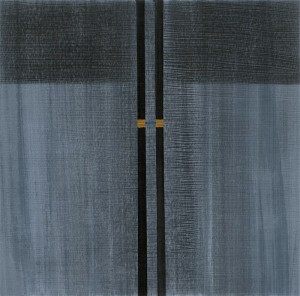
“Alone Together Alone” by Peter Groesbeck
Now he works in public administration, planning department—hospitals. After his tour in the Stan he got the degree and the job. A very good looking wife and a house not too far from bars appropriate to a certain level of presentation, a certain image projection. That’s all fine. Yet before this finer period there was the clinic at Bagram air base.
Porn and liquor smuggled through in Listerine bottles killed the off time. You just drill out that little nipple on the base of the bottle, leave the cap sealed and then you rinse and fill. Hot glue gun to replace the nipple. Those were the days. The nights were real work.
Over there the stars are overwhelming and so he’d go out early to the gate calls and stand around stamping his feet, look at the ridgelines far off. They’d call in from the perimeter and he’d watch the headlights and the dust trailing in the dark. The guards would clear the Afghanis before any medical personnel made contact. So in general the only issues in the contact were logistical.
Their trucks were old Toyotas that will run until the end of time. Rusted and patched with linens and 100mph tape and pocked with AK rounds. They looked like they’d already seen the end of time and returned. In the dark the native men acted like children. Turning over their dead in the US supplied rubber bags made no sense to anyone involved, but it was a regular occurrence.
It was the real work.
We’re 90 percent liquid. If you don’t let air get to a body the liquid doesn’t return to the atmosphere as it decomposes. The liquid should have its own name. Phrases such as body fluids just don’t cover the necessities of description. The smell is concentrated in the bag also. Our ancestors evolved instincts to be overcome by this smell, to run from it wafting on the breeze. The Afghanis got a few trinkets, a little swag bag of candy and transistor radios for turning the corpses over.
The real work is to haul awkward bags of fluid and bones that were once a body.
Get them in the Humvees somehow. Five or ten at a time and prop them on each other with the two ends secured so that shit doesn’t go spewing all over everything on the drive from the gate shack to the morgue complex. Accidents happen.
He’d ride in the passenger seat and think about the eyes of the men. Where were they going now but back into the desert and the mountains with their bags of candy and their bugged radios? They had no porn. They had hashish though didn’t they? Their eyes in the headlights of the vehicles were like those of goats somehow, passive only to a point.
As they make the mile back to the compound that smell coming off the bags is remarkable, but it’s the texture of the affair that seals it up so he’ll always, always remember it all. The way the fluid slops inside as they haul it at the ends. The way the long bones fold together in the middle like toothpicks in a ziplock.
He wanted to go Special Forces. To make the bodies rather than catalog them. To be special.
The real work is in storing bags of liquefied bodies in a room saucy with them. The masks don’t provide much relief. It comes through the vents into the admin office. It’s on your clothes until they go to the launders. And even then sometimes–somehow–it’s in the folds.
The bags are thick and black and the zippers are rated to 700 pounds of force. Bill me. Only, the rubber material, for reasons of olfactory chemistry and governmental finance seem to absorb, take on and seem to retain the smell forever. One Time Use, is stenciled on the exterior.
No shit.
Walking to the bar sometimes that smell is on his fingers, even though he just showered and changed into clothing befitting a well-employed young, urban man with acceptable tastes in propaganda and inebriants. It’s there and then it’s gone.
He thinks maybe it’s the sewer, but Portland sewers are deeply contained and serviced at regular intervals exceeding industry standards. It’s a good city. Even in the rain, the bars are very warm. He knows it can’t be the sewers and he knows it cannot be real.
No the real work is over. Isn’t it?
Andy Edwards is a writer and tracking instructor. He lives at the end of the Applegate Trail in southern Oregon.
Read an interview with Andy here.

Pingback: July 2013 | Rkvry Quarterly Literary Journal
Pingback: Interview with Andy Edwards | Rkvry Quarterly Literary Journal